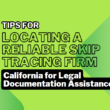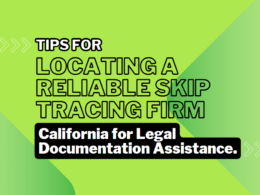We rely on insurance companies to play fair when we file insurance claims. After all, they hold most of the power in these situations, and standing up to a big insurance company can be difficult. Sadly, many insurance companies do not play fair and try to cheat claimants out of fair compensation. These bad-faith negotiators must be held accountable.
Bad faith negotiators are insurance companies and those who work for them who try to weasel out of paying people for their damages, even if it means breaking the law. Some signs that the insurance company is negotiating in bad faith include claims settled too quickly, claims that never seem to move forward, and claims denied without explanation. These bad-faith dealings are not just immoral but illegal in Georgia. An attorney can help you determine whether you have been the victim of bad faith dealing and work with you to rectify the problem. This might mean appealing the denial through the insurance company or taking them to court.
How to Tell if an Insurance Company is Negotiating in Bad Faith
If insurance companies are famous for anything – or maybe infamous is the better word – it is having complicated rules and complex procedures that make it difficult for injured claimants to get their damages covered. Insurance companies might use their complex systems against you and negotiate in bad faith. The rules are often so complicated that claimants cannot tell they have been duped. If you suspect an insurance company has cheated you, talk to an Atlanta personal injury attorney about the signs of bad faith dealing.
One sign to be wary of is how quickly your claim is denied. For some, their claim is denied so quickly that it raises suspicion. How could the insurance company have possibly reviewed your claim and denied it so fast? In such cases, they might deny your case in the hopes that you just accept it and move on.
The flip side of that coin is that your claim might be at a standstill. Insurance companies are not exactly known for being fast, and claimants often expect to wait for a while. However, something might be amiss if you have not heard from the insurance company in months. The insurance company might be trying to wait you out.
Another common red flag is that your claim is denied with no explanation. Insurance companies usually have to provide a detailed explanation for why they deny a claim. Many companies provide an explanation in the same letter they inform a claimant of the denial. If you never get an explanation, something might be wrong, and you should call a lawyer.
On top of all that, the insurance company should also provide information about how you can challenge their decision. If they never tell you how to appeal, they might be dealing in bad faith.
Is Negotiating in Bad Faith Against the Law?
When insurance companies negotiate in bad faith, they are not just being underhanded and unfair; they are also breaking the law. According to O.C.G.A. § 33-4-7(a), auto insurance companies have an affirmative duty to review and adjust claims and losses fairly and in a timely manner. They should take reasonable steps to investigate and make good faith efforts to pay for claims that are covered by their policies. Negotiating in bad faith is a violation of this affirmative duty.
A lawyer can help you sue for bad faith dealings if the insurance company handled your claim unfairly. You may also sue if they did nothing with your claim. According to O.C.G.A. § 33-4-6(a), you can sue for bad faith if your claim is not settled 60 days after you file it. Not only is denying your claims based on bogus criteria unlawful but so is doing nothing about the claim for too long.
What a Lawyer Can Do to Protect You From Bad Faith Negotiators
Talk to a lawyer immediately if you believe your insurance claim was denied in bad faith. Your attorney can help you demand an explanation from the insurance company. When claimants are represented by legal counsel, insurance companies tend to pay more attention. It is possible that the bad faith dealing was actually a mistake, and your lawyer can help you get it corrected as quickly as possible.
Your attorney might instead help you appeal the denial in the hopes of having your claim reconsidered. If the insurance company refuses to give you information about appealing your case, your attorney can step up to the plate and make them play fairly.
If all else fails, your lawyer can help you sue the insurance company for bad-faith negotiations and dealings.
How to Avoid Bad Faith Negotiators in Future Insurance Claims
Perhaps the best way to handle bad-faith negotiators is to avoid them before they become a problem. Hire an attorney before you talk to an insurance company. Legal representation makes it harder for an insurance company to deal in bad faith.
Gather as much evidence as possible to support your claims. The more evidence you have, the harder it will be for the insurance company to deny your claim. It is much easier to deny a claim when the evidence is shaky.
Keep in regular contact with the insurance company. Your attorney can check in with the adjuster assigned to your claim every few weeks or so to make sure you do not slip through the cracks or are purposefully left behind.
Keep a thorough record of everything that goes on between you and the insurance company. If your claim is ultimately denied and you suspect bad-faith negotiations, we need evidence of every communication and interaction between you and the insurance company to build your case.











